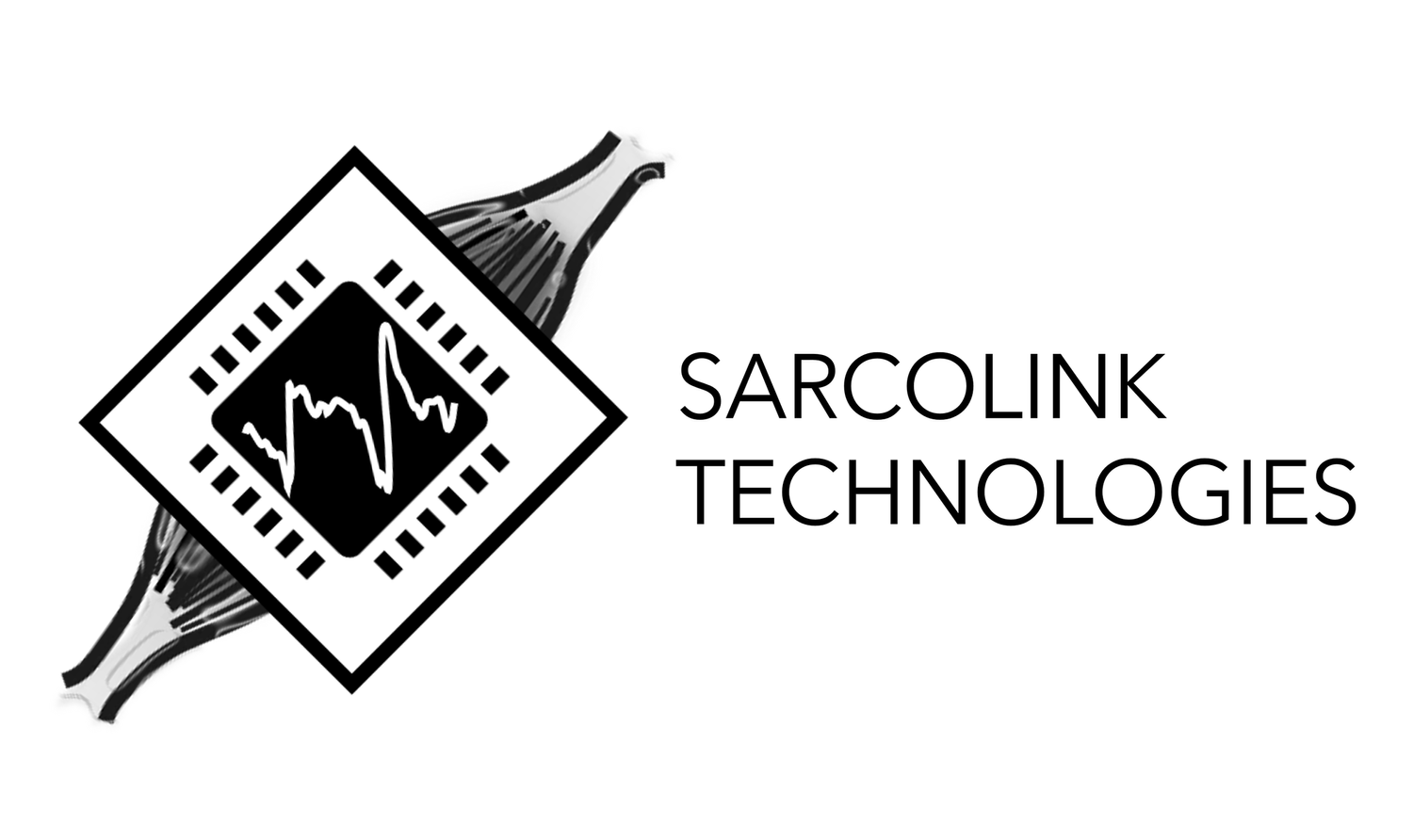Meet the Sarcolink Team
Stephen Toepp, PhD
Founder, President
Stephen Toepp obtained his PhD in Kinesiology at McMaster University in 2024 in the field of sensorimotor neuroscience. His PhD dissertation documents his development of our ground-breaking Multiclass EMG Biofeedback technology. Shortly after graduating, he founded Sarcolink Technologies where he continues to refine this technology and develop tailored configurations to benefit people living with specific functional deficits. In his work, Dr. Toepp integrates sophisticated computing and software tools with his expertise in human kinetics and neuroscience.
He is also a postdoctoral associate in the Neurophysiology and Imaging Laboratory at McMaster University. There, he leads a clinical trial investigating the impact of various approaches to mobility and balance training in populations with increased risk of falls and fall-related injuries.
Aimee J. Nelson, PhD
Advisor - Sensorimotor Neuroscience
Professor Nelson received her PhD from the Institute of Medical Sciences at the University of Toronto in 2003 in the field of human neurophysiology and neuroimaging with funding from the Natural Sciences and Engineering Research Council of Canada. She subsequently pursued a Postdoctoral Associate in the McGovern Center for Brain, MIT from 2003-2005 where she advanced the technique of high-field (9.4T) monkey imaging. In 2005, Dr. Nelson became a Canadian Institutes of Health Research funded Postdoctoral Fellow at the Toronto Western Research Institute where she continued to advance neurophysiology and imaging techniques with studies in individuals with movement disorders. In 2008, Dr. Nelson joined the Department of Kinesiology at the University of Waterloo as Assistant Professor. Dr. Nelson joined the Department of Kinesiology at McMaster University in 2012 as a Tier 2 Canada Research Chair in Sensorimotor control and is now full Professor. Dr. Nelson is a member of the Society for Neuroscience, and an Associate member of the Department of Biomedical Engineering at McMaster University.
Martin von Mohrenschildt, PhD
Advisor - Computing and Software
Martin obtained his Ph.D. in Mathematics from the ETH-Zürich, Switzerland. He is a faculty member at McMaster University Engineering, initially in Electrical and Computer Engineering, and then in Computing and Software. From 2005-2011 he was the Chair of the Department. During this time, he implemented the Mechatronics Program at McMaster University. While his core expertise is in mathematics, Dr. v. Mohrenschildt always had a big passion for electrical and mechanical systems. His research interests include signal processing and control, sensors and data acquisition, real time data processing. Over the years Dr. v. Mohrenschildt and his students built several software/hardware systems for industrial applications that at their core use signal processing-based feature extraction. For the mining industry he continues to develop a system of sensors that are used commercially to analyze vibrating screens. He also designed and built a minivan sized fully immersive 6DOF flight/driving simulator to study the effect of motion cueing in learning.
Suresh Menon, MD
Advisor - Neurology, MS
Suresh Menon is a Multiple Sclerosis (MS) specialist neurologist at the Division of Neurology, Department of Medicine, McMaster University, Hamilton Health Sciences. He is a recipient of the McDonald Fellowship conferred by the Multiple Sclerosis International Federation (MSIF), United Kingdom. He pursued postdoctoral and clinical fellowship trainings in Multiple Sclerosis from the University of British Columbia (UBC), Vancouver, BC and Western University, London Health Sciences, ON (2011-2014) and has been sub-investigator in numerous trials. He is also a recipient of the Specialty Certification in Neurology (2012) from the Royal College of Physicians (UK) and the Association of British Neurologists (ABN). He has additional Fellowship training in Movement Disorders from National Parkinson Foundation Centre of Excellence, Western University, London, ON (2014-15) and has experience in deep brain stimulation (DBS) programming and Duodopa infusion pumps. Dr. Menon leads the MS program at the patient-centered specialty referral MS clinic at the Hamilton General Hospital. His main clinical interest is providing comprehensive interdisciplinary care to individuals with MS and other demyelinating and autoimmune diseases attending the MS Clinic. He has experience with all the new and latest disease modifying therapies in MS, PI for clinical trials and employs risk stratification and mitigation strategies to optimize treatment and enhance clinical vigilance. He has a special interest in aggressive disease presentations. His work involving large databases on MS has helped characterize and provide definitions for aggressive MS and better understand the heterogeneity and natural history of extremes of MS. He has a research interest in strong therapeutic agents used in highly active disease, identifying adverse effects and understanding PML. He also has an interest in clinical applications for emerging biomarkers, cognitive impairment in MS and imaging correlates, optimizing exercise strategies. He is a founding member of the Center for Autoantibody Research & Diagnostic (CARD) initiative. He is a member of the Canadian Multiple Sclerosis Working group (CMSWG) drafting the Treatment Optimization Recommendations in Multiple Sclerosis.




